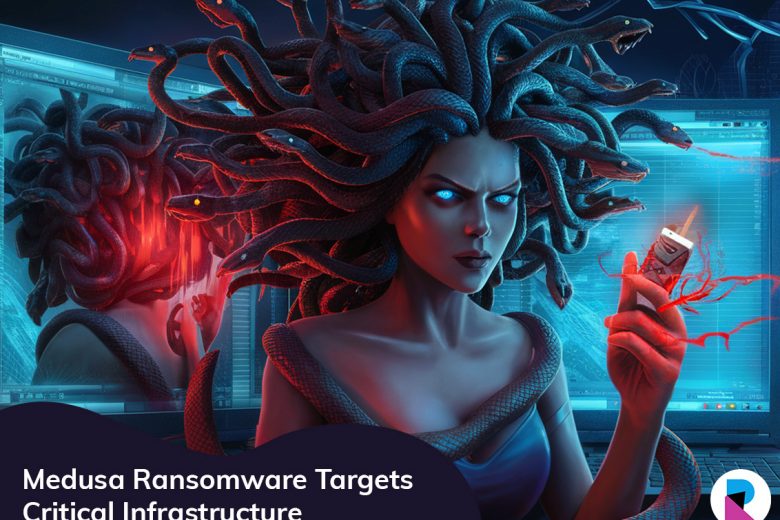The Federal Bureau of Investigation (FBI) and Cybersecurity and Infrastructure Security Agency (CISA) have issued warnings about the Medusa ransomware, which has been actively targeting critical infrastructure since 2021. This sophisticated malware has impacted hundreds of individuals and organizations globally, leveraging phishing campaigns to steal credentials and initiate attacks.
How Medusa Ransomware Works
Medusa ransomware operates on a double extortion model, where cybercriminals encrypt victim data and simultaneously threaten to release sensitive information publicly if the ransom is not paid. The attack begins with a phishing email that tricks users into downloading malicious files or clicking on compromised links.
Once the malware gains access to a system, it:
- Steals login credentials and escalates privileges.
- Encrypts data across multiple devices and networks.
- Demands ransom payments, usually in cryptocurrency.
- Threatens to leak stolen data if payment is not received.
Industries at Risk
Critical infrastructure sectors, including government agencies, healthcare, financial institutions, and education, are among the primary targets of Medusa ransomware. Organizations must remain vigilant by implementing strong cybersecurity protocols and investing in cybersecurity training to mitigate risks.
For those interested in strengthening their knowledge of cybersecurity and protecting against such threats, consider enrolling in:
- Beginner Cyber Security Package
- Certified Ethical Hacker (CEH) Course
- CompTIA Security+ Certification
- Certified Network Defender (CND)
How to Defend Against Medusa Ransomware
To reduce the risk of a Medusa ransomware attack, organizations and individuals should follow best security practices, including:
- Employee Training – Ensure that all staff are trained to recognize phishing emails and social engineering tactics.
- Multi-Factor Authentication (MFA) – Enable MFA on all accounts to add an extra layer of protection.
- Regular Backups – Maintain offline backups of critical data to minimize damage in case of an attack.
- Endpoint Protection – Deploy advanced network security solutions to detect and prevent ransomware activity.
For professionals looking to specialize in ransomware defense, explore:
- Computer Hacking Forensic Investigator (CHFI)
- Certified Cloud Security Engineer (CCSE)
- AWS Security Specialty
The Importance of Incident Response
If an organization falls victim to Medusa ransomware, immediate action is crucial:
- Isolate infected systems to prevent further spread.
- Report the attack to authorities such as the FBI’s Internet Crime Complaint Center (IC3).
- Do not pay the ransom, as this encourages further criminal activity.
Security analysts can gain deeper insights into incident response through:
- Certified Information Systems Auditor (CISA)
- Certified Information Security Manager (CISM)
- Certified Information Systems Security Professional (CISSP)
Final Thoughts
Medusa ransomware continues to pose a serious threat to organizations worldwide. Strengthening cybersecurity measures and investing in training and certifications can significantly enhance protection against such attacks. If you’re looking to build a career in cybersecurity, consider certifications that align with industry standards.
For more information on cybersecurity training and career pathways, visit our Cybersecurity Training Page.
